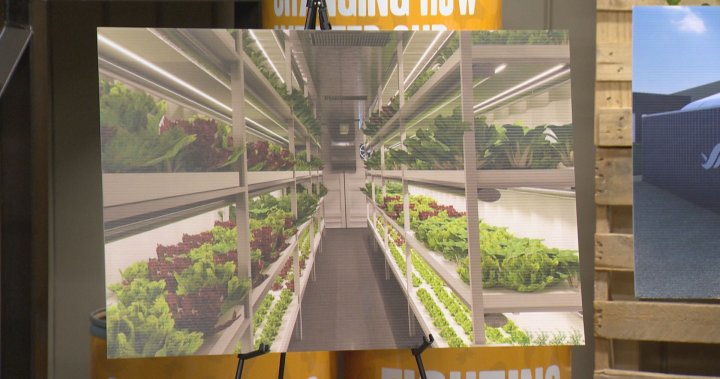The Regina Food Bank (RFB) has announced an initiative to address food insecurity in the community, with funding support from Farm Credit Canada (FCC). The initiative aims to improve the capacity of the RFB to secure and distribute food, particularly in the face of increased demand. The RFB Vice-President Community, David Froh, emphasized the importance of strategic partnerships, procurement, and sourcing in meeting the needs of the community. CEO and president John Bailey noted that the need for food assistance has grown exponentially in the local community, prompting the RFB to explore new approaches to addressing food insecurity.
One of the key aspects of the initiative is the adoption of containerized agriculture to grow produce internally. This approach is seen as a way to increase the availability of fresh, locally grown produce for distribution to those in need. The anticipated first harvest is expected in early fall, marking a significant milestone in the RFB’s efforts to provide nutritious food options to the community. The FCC President and CEO, Justine Hendricks, highlighted the innovative nature of the project and its potential impact beyond Regina, suggesting that the success of the initiative could influence how food banks across Canada support their communities.
The RFB is excited about the economic benefits that may arise from the initiative, including the creation of additional positions to support the containerized agriculture project. By investing in modular growing techniques, the RFB aims to not only address immediate food insecurity but also to provide long-term solutions that can benefit the local economy. The partnership with FCC is seen as a strategic opportunity to leverage resources and expertise in order to make a meaningful impact on food insecurity in the community.The initiative represents a shift towards a more sustainable and self-sufficient approach to food distribution, with an emphasis on fresh, locally grown produce for those in need.
As the project progresses, the RFB will continue to monitor its success and look for opportunities to expand its impact both locally and nationally. By demonstrating the viability of containerized agriculture in addressing food insecurity, the RFB hopes to inspire other food banks to adopt similar strategies in their communities. The collaborative effort between the RFB and FCC exemplifies the power of partnerships in creating innovative solutions to complex social issues. Overall, the initiative represents a proactive and forward-thinking approach to addressing food insecurity in the Regina community and beyond.


